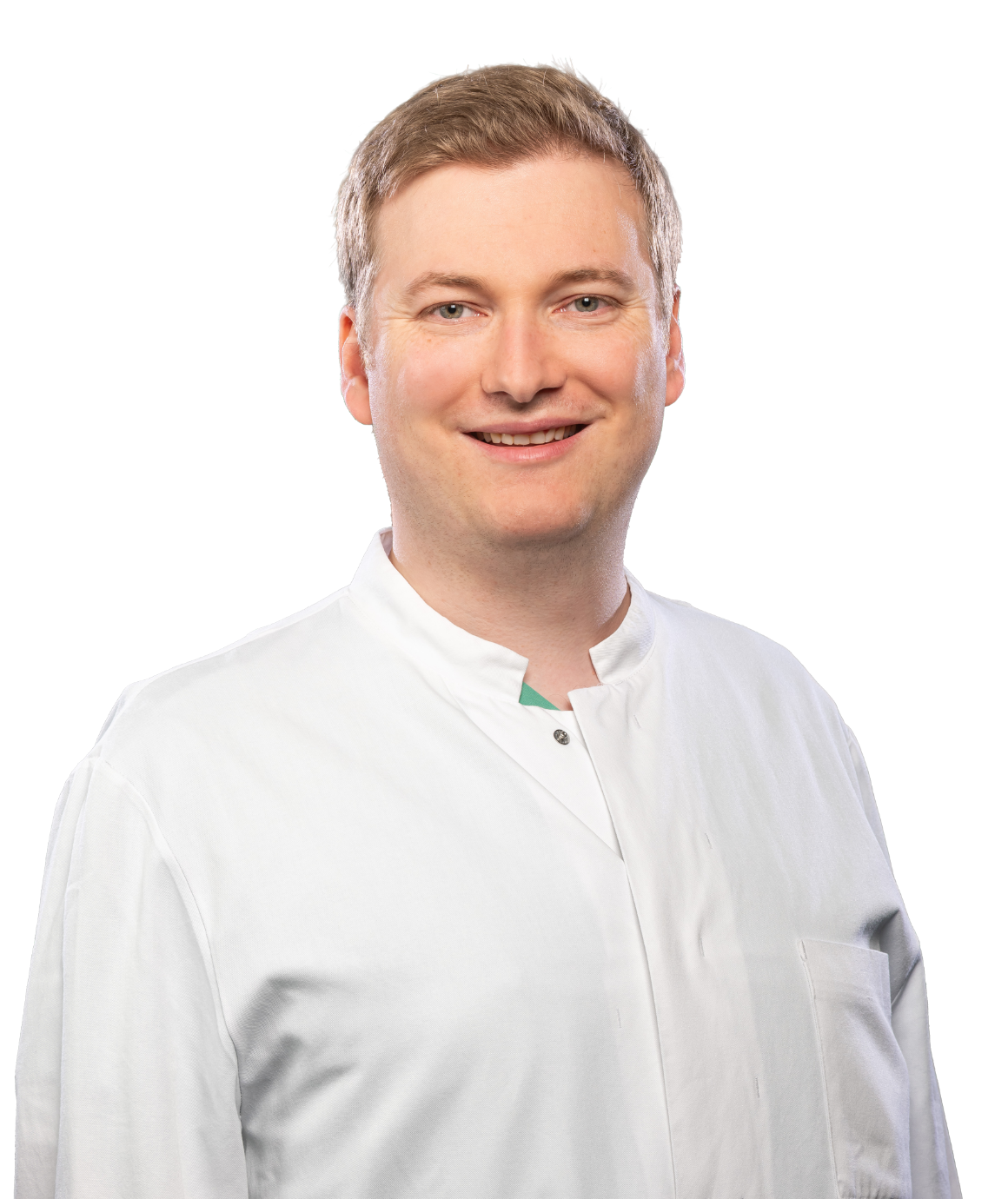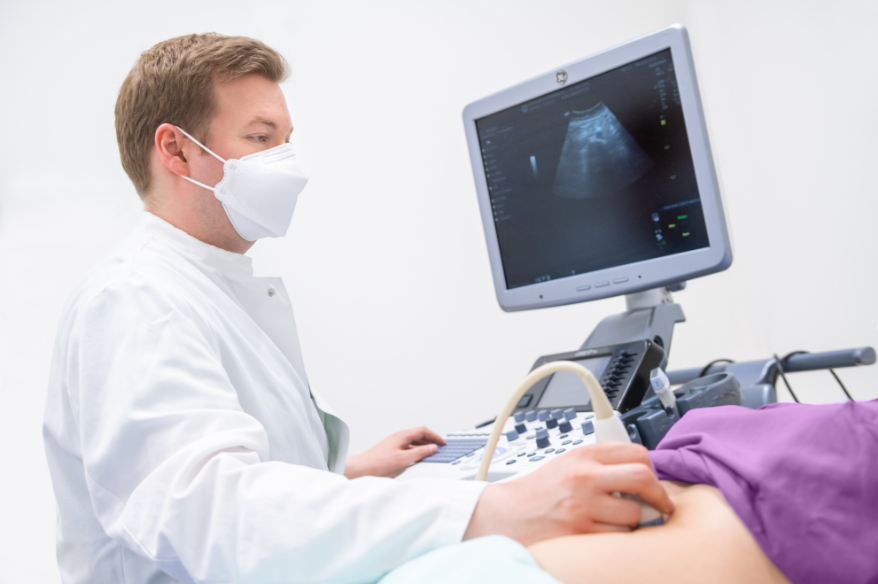
There is intense activity in the surgical coordination room: The nurses and physicians are discussing cases, preparing to place casts on patients or sending blood samples to the laboratory via the pneumatic dispatch system. Using our NIDA digital data platform, I see that Ms. Schäfer has just arrived. As a surgeon and resident physician, I am taking over the initial treatment of new arrivals today. In treatment room 8, the nurse places a venous line through which not only blood is collected but a painkiller is administered. Alleviating the pain is always the first step in the examination.
“Hello Ms. Schäfer, I am Dr. Liesenfeld. Can you tell us why you came to the emergency room?” During the taking of the medical history, I ask specific questions about the patient’s condition: How did the pain develop? Is this a burning or a colicky pain? Did you have any operations in the abdominal region in the past? The answers never suffice to make a tentative diagnosis. For more clarity I listen to the organs with my stethoscope and palpate the abdomen. “Good, Ms. Schäfer. I cannot ascertain any resistances or tenderness over the abdominal organs. As the next step, we are going to perform an ultrasound study of the abdomen and wait for the results of your blood sample. The blood values will help me to recognize an inflammation in the abdomen. However, I also request values from the lab that provide information about other organs, such as the heart. In the emergency room it is important to consider even unlikely causes. Hopefully the apparatus-based diagnostic tests will provide more precise information about Ms. Schäfer’s state of health, as I have not been able to detect any abnormalities to date. If not, I will discuss this case with Dr. Christine Leowardi, senior physician in charge of the emergency room.

Fit for the Medicine of the Future – Teaching at UKHD In addition to patient care and research, training plays an important role for the approximately 4000 students at Heidelberg University Hospital (UKHD). With a tradition of over 630 years, the Heidelberg Medical Faculty is part of the oldest university in Germany. Future physicians are taught in a practice-oriented and interdisciplinary manner at the research institutes and medical centers on the Heidelberg Campus. Learn more
In my three years in the emergency room at UKHD I have experienced numerous complex cases in different disciplines. The close collaboration with the experienced nursing and medical staff members has always given me more confidence. Especially Dr. Leowardi has taught me how to diagnose severe illnesses in the abdomen quickly and precisely, how to provide optimal treatment and to correctly decide who must undergo surgery or not. I would like to share this knowledge. That is why I am working on my postdoctoral qualification at the UKHD. I am happy about the fact that I will not only be closely involved in the research and will practice interesting medicine but will also teach students at the Heidelberg Medical Faculty as a lecturer. I especially like to teach students the systematic examination of emergency patients and diagnostics using an ultrasound study. It makes me proud that I am currently working both as a physician and as a lecturer at a university hospital that enjoys an excellent reputation throughout Europe with respect to research and practicing medicine.
Back to physician's letter


